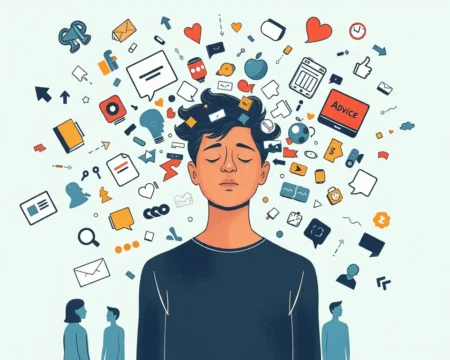A new study from Northeastern University reveals that self-help groups significantly improve the likelihood of successful opioid addiction treatment. The research, published on January 27, 2025, highlights that patients who combine medication with attendance at a support group are over 25% more likely to complete their treatment. This finding underscores the critical role of peer support in overcoming the opioid crisis, which continues to claim thousands of lives annually.
The Opioid Epidemic and the Need for Effective Treatment
The opioid crisis remains a severe public health concern in the United States. While the number of overdose deaths saw a slight decrease between 2023 and 2024, with more than 81,000 deaths in 2024, millions of people still grapple with opioid addiction. Medications are available to treat opioid use disorder, yet a significant number of individuals who begin treatment do not complete it, leaving them vulnerable to relapse and overdose. This is where the importance of support groups comes into play.
The Power of Peer Support: Northeastern’s Research
Researchers at Northeastern University delved into a vast national dataset of patients with opioid use disorder to identify factors that contribute to successful treatment completion. Using artificial intelligence to analyze the data from the Substance Abuse and Mental Health Services Administration (SAMHSA) from 2015 to 2019, they discovered that combining medication with self-help groups made a substantial difference.
Key Findings from the Study
The study, led by Muhammad Noor E Alam, a professor of mechanical engineering at Northeastern, revealed the following:
- Increased Treatment Completion: Patients who attended self-help groups while undergoing medication-assisted treatment were over 25% more likely to complete their treatment program.
- Significant Difference in Completion Rates: Among the 157,885 patients studied, 49,058 attended self-help groups. More than half of these patients (51%) completed their medication treatment. In contrast, only 19% of patients who did not attend self-help groups completed treatment.
- Importance of Support: The support of others facing similar challenges, guided by health professionals, increases the likelihood that patients will adhere to their medication regimens until treatment completion.
These findings underscore that medical interventions, while effective, are more successful when paired with the emotional and social support provided by self-help groups. The data suggests that peer support plays a crucial role in treatment adherence and long-term recovery.
How Self-Help Groups Support Addiction Recovery
Self-help groups, also known as mutual support groups, provide a platform for individuals with similar experiences to share their stories, support one another, and foster a sense of community. These groups operate on the principle that recovery is more manageable when individuals are surrounded by others who understand the challenges they face.
Key Benefits of Self-Help Groups
- Shared Experience and Empathy: Members of these groups have often faced similar struggles with addiction, which allows for a deep level of understanding and mutual support that can be absent in other therapeutic settings. This shared experience fosters an environment where individuals can openly discuss their challenges without fear of judgment.
- Community and Reduced Isolation: Addiction can be an isolating experience. Self-help groups create a sense of community, reducing the feeling of loneliness and helping individuals reconnect with others.
- Hope and Encouragement: Seeing others in recovery and witnessing their progress can inspire hope and encourage individuals to stay committed to their own recovery journey.
- Structured Support Network: Regular meetings provide a consistent touchpoint for members, maintaining motivation and commitment to sobriety.
- Personal Responsibility and Growth: These groups promote personal accountability and ongoing growth, which are vital for long-term recovery.
- Practical Coping Strategies: Members share practical advice and coping mechanisms, helping each other navigate challenges and manage cravings, triggers, and stress.
- Relapse Prevention: Self-help groups provide strategies and support for relapse prevention, an essential component for long-term sobriety.
- Emotional Support: Individuals can express feelings of fear, sadness, and hopelessness in a safe space, helping them make sense of these emotions and find solutions.
- Reduced Stigma: By challenging the stigma associated with addiction, self-help groups promote understanding and compassion toward individuals in recovery.
Types of Self-Help Groups
Various mutual self-help groups exist, with some of the most common being:
- 12-Step Programs: Programs like Alcoholics Anonymous (AA) and Narcotics Anonymous (NA) utilize a 12-step approach to guide individuals through their recovery. These programs emphasize sharing strength, hope, and experience.
- Self-Management and Recovery Training (SMART) Recovery: This program offers a different approach to recovery, focusing on self-empowerment and skill-building.
- Peer-Led Groups: Many self-help groups are led by individuals who have personal experience with addiction and recovery, offering a unique perspective and creating strong bonds.
These groups are typically free, anonymous, and easily accessible, making them readily available throughout the long-term recovery process.
Implications for Policy and Practice
The Northeastern University study has significant implications for policy and practice. The results highlight the need to integrate self-help groups into opioid addiction treatment protocols, emphasizing the critical role of peer support in enhancing treatment outcomes.
Recommendations for Policymakers and Healthcare Providers
- Promote Funding for Community-Based Programs: Policymakers should prioritize funding for community-based recovery programs, both supporting existing self-help groups and fostering environments where new ones can thrive.
- Integrate Self-Help Groups into Treatment: Healthcare providers should actively encourage patients to participate in self-help groups as part of their treatment plans.
- Increase Awareness: Raising awareness about the benefits of self-help groups is essential to encourage participation and reduce the stigma associated with seeking help.
- Address Disparities: Efforts should be made to address disparities in access to self-help groups, ensuring that these resources are available to all individuals, regardless of race, ethnicity, or sex.
Conclusion
The research from Northeastern University reinforces the importance of self-help groups in opioid addiction treatment. By providing a supportive community, practical coping strategies, and a platform for shared experiences, these groups significantly increase the likelihood of successful treatment completion. As the opioid crisis continues to impact communities across the United States, integrating peer support into treatment plans is crucial for ensuring long-term recovery and reducing the tragic consequences of this epidemic. The findings serve as a call to action for policymakers and healthcare providers to recognize and utilize the power of self-help groups in the fight against opioid addiction.










